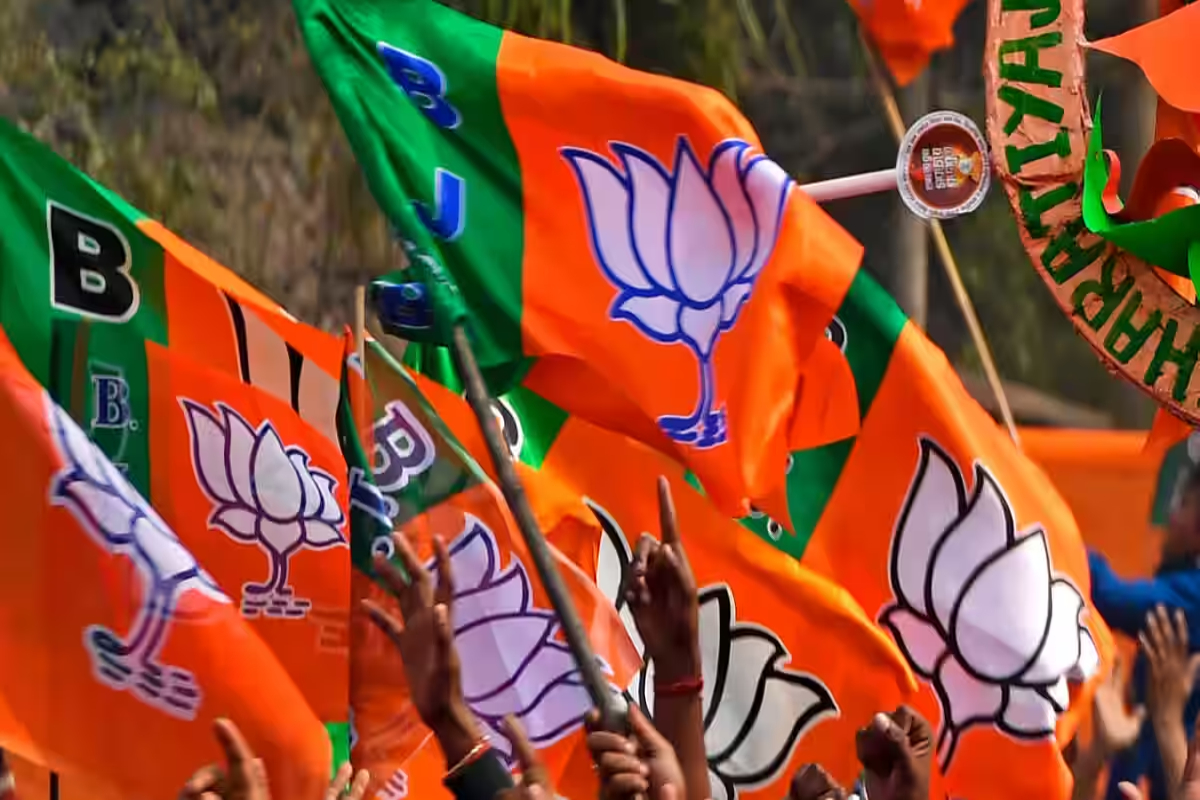Hate speech: BJP leader George seeks time to appear before police
George on Saturday requested the police for an extension until February 24 to appear before them for investigation in connection with the case.
The BJP is heading for a simple majority in the 90-member state assembly with the main Opposition Congress far behind.

[Representational Photo]
Belying Congress expectations and exit polls, voters in Haryana reposed faith in the ruling BJP yet again bringing it back to power for a third consecutive term.
The BJP is heading for a simple majority in the 90-member state assembly with the main Opposition Congress far behind.
Advertisement
Even though the BJP had been in power in the state for ten long years, Congress, despite its determination to stage a comeback, was just not able to stop the ruling party’s juggernaut.
Advertisement
This electoral contest, the first significant face-off between the two national parties after the Lok Sabha elections, has the potential to shape the political discourse in the run-up to assembly elections in Maharashtra, Jharkhand, and Delhi.
In Haryana, where it was taken for certain that Congress had been heading for a big victory, it lost while the BJP, for which no exit poll had predicted even a marginal victory, managed to win, that too, with a big difference.
The Haryana assembly elections largely turned out to be a bipolar contest between the BJP and Congress though parties like the Aam Aadmi Party (AAP), Indian National Lok Dal (INLD), and Jannayak Janta Party (JJP) had also thrown their hats in the ring. Leaders of these regional parties, such as JJP’s Dushyant Chautala and INLD’s Abhay Chautala, had each claimed their alliances were poised to play a kingmaker if the election yields a hung assembly. Meanwhile, AAP supremo Arvind Kejriwal had claimed that no government could be formed without his party’s support.
The BJP, which has the expertise of planning and organisation, realising that it might lose in Haryana, swiftly made several changes. It replaced Manohar Lal, whose term was about to expire, with Nayab Singh Saini as chief minister, to placate the OBC voters. The former CM was also not only kept out of the election campaign but also from the posters or banners.
However, Congress insiders say that the complete dominance of Hooda camp in ticket distribution, the rift between Hooda and Selja Kumari and the latter’s late entry into the campaigning for the party candidates really put paid to whatever chances the party had in the run-up to the elections.
What has really surprised the party is the fact that despite showing a good performance in the Lok Sabha elections in the state earlier this year by bagging five of the ten seats, it was not able to maintain the tempo.
In fact, a visibly upset Mr Hooda, while addressing the party workers, still claimed that they were getting a majority in the state and alleged that the Election Commission was not updating the data on its site. The Commission, meanwhile, denied the allegations made by the grand old party.
Congress, lacking organisational power, failed to reach out to its last voter. The grand old party was weakened by factionalism. The rivalry between Bhupinder Singh Hooda and Kumari Selja tilted the scales in the favour of the BJP. Hooda didn’t even listen to his leader Rahul Gandhi, who was in favour of forming an alliance with the AAP. Many rounds of negotiations did take place between the AAP and the Congress leaders but without any results.
Two smaller parties, the Indian National Lok Dal (INLD) and the Jannayak Janta Party (JJP), joined hands with other parties. The Bahujan Samaj Party (BSP) was in alliance with the INLD while Chandrashekhar Azad’s Azad Samaj Party (ASP) was with Dushyant Singh Chautala’s JJP. The combined vote share of these two formations is around 7 per cent and together, they surely dealt a blow to the Congress, which had been banking heavily on Jat and Dalit support.
Among the winners of the saffron party, Chief Minister Nayab Singh Saini defeated Congress’ Mewa Singh from Ladwa with more than 16 k-vote margins.
Mukesh Sharma defeated Independent candidate Naveen Goyal in Gurugram and Congress’ Mohit Grover stood third. From Sonipat, Nikhil Madan defeated Congress’ Surender Panwar while Shruti Choudhry won from Tosham defeating Congress rival Anirudh Chaudhary.
Among the Congress winners, former wrestler Vinesh Phogat defeated Yogesh Kumar of the BJP from Julana.
Aditya Surjewala, son of senior Congress leader Randeep Surjewala, defeated BJP’s Leela Ram. Aditya, a Commerce graduate from Columbia University, was launched into politics by his father, who could not get the ticket for himself. Under former CM Hooda’s pressure, he was denied the Kaithal ticket since he was supposed to be close to the Kumari Selja group.
India’s richest woman and Independent candidate Savitri Jindal defeated her nearest rival Ram Niwas Rara of the Congress from Hisar while BJP’s Dr Kamal Gupta was a distant third. In Nuh, Aftab Ahmed of the Congress defeated Tahir Hussain of Indian National Lok Dal and BJP’s Sanjay Singh stood third.
Advertisement